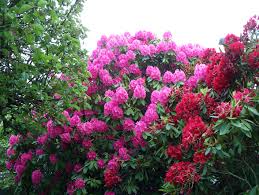GLADHANDED GARDENERS, WEEK FOUR: SOLITUDE
HOMEA PHILOSOPHIC HISTORY OF SOLITUDE

"What is the pill that will make us well, serene, contented?"
All week we think about the answer to this question which Thoreau asks in this chapter.
Lonliness can be really really hard to suffer, and if you feel lonely RIGHT NOW you can reach out to us. We check this email almost every day before 9:45 pm: lavalangadivita@gmail.com
Thoreau describes a feeling he experienced after suffering a bad bout of lonliness one day, that nature was actually keeping him company somehow.
He decided that nature, the reality of nature, would keep a soul from becoming truly sad if the soul was alert.
He doesn't seem to have been hallucinating, although it's possible.
It is interesting, and probably not an accident, that the chapter on solitude follows the chapter on sounds, which follows reading, which follows a general reflection on basic existential questions.
Most people don't have the chance to actually live in absolute solitude and it's kind of bizarre at first if you try it even for a day, in the woods
but those who try this in nature often report sensing some kind of palpable peace which is not really explainable.
Is solitude in nature different from solitude in a maximum security prison?
If it is, what is it about a natural environment that comforts a person more than certain kinds of manmade environments?
Is it better to try to improve on nature, or just leave her alone? And when we say IMPROVE do we mean, prune a bush or cut it down?
Diary of plant observations: This weekend we planted a tremendous amount of plants.
The hard part is getting the ground prepared, and waiting for a day when it wasn't raining, but soon would be, and now, the birds, woodchucks and squirrels are already into it beg time.